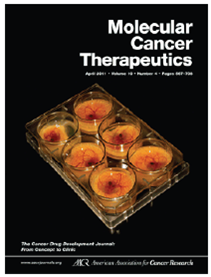Therapeutics In Ovo
Watch the video below to learn about Dr. Charles Keller and his research on "Therapeutics in Ovo" at the Oregon Health & Science University in Portland, OR.
 The progression of cancer from its original site to one or more sites elsewhere in the body is the principal cause of death for cancer patients. This process of “metastasis” is especially problematic for childhood muscle cancer. Our laboratory uses a genetically-engineering mouse model to understand how metastasis occurs and to test drugs for the ability to inhibit metastasis. The model was originally developed when the applicant was a mentored physician-scientist trainee in the laboratory of 2007 Nobel Laureate, Mario Capecchi. Although this mouse model is a powerful tool, the pace of testing new drugs is limited to one or two per year. We believe that we can better prioritize effective and innovative drugs using a technology-adapted version of a 50 year old chicken egg assay. This project proposes to use this inexpensive, rapid chicken egg analysis to screen compounds that have the potential to inhibit tumor progression or metastasis in childhood muscle cancer. Validated compounds can then be prioritized for preclinical validation using a unique genetic mouse model. Clinical trials for lead compounds would follow. We hope that once the pipeline for testing candidate drugs and compounds is optimized, this preclinical resource will be publicly accessible as a core resource facility for researchers investigating possible new therapies for childhood muscle cancer.
The progression of cancer from its original site to one or more sites elsewhere in the body is the principal cause of death for cancer patients. This process of “metastasis” is especially problematic for childhood muscle cancer. Our laboratory uses a genetically-engineering mouse model to understand how metastasis occurs and to test drugs for the ability to inhibit metastasis. The model was originally developed when the applicant was a mentored physician-scientist trainee in the laboratory of 2007 Nobel Laureate, Mario Capecchi. Although this mouse model is a powerful tool, the pace of testing new drugs is limited to one or two per year. We believe that we can better prioritize effective and innovative drugs using a technology-adapted version of a 50 year old chicken egg assay. This project proposes to use this inexpensive, rapid chicken egg analysis to screen compounds that have the potential to inhibit tumor progression or metastasis in childhood muscle cancer. Validated compounds can then be prioritized for preclinical validation using a unique genetic mouse model. Clinical trials for lead compounds would follow. We hope that once the pipeline for testing candidate drugs and compounds is optimized, this preclinical resource will be publicly accessible as a core resource facility for researchers investigating possible new therapies for childhood muscle cancer.
Update 7/2011 by Dr. Keller
 The progression of cancer growth and spread from its original site to one or more sites elsewhere in the body is the principal cause of death for cancer patients. This process of “metastasis” is especially problematic for childhood muscle cancer, specifically alveolar rhabdomyosarcoma (ARMS). Historically, our laboratory has used a genetically-engineering model to understand how tumor growth and metastasis occurred and to test drugs for the ability to inhibit these processes. Although this model is a powerful tool, the pace of testing new drugs is limited to one drug every 6-8 weeks at an expense of $11,300. With funds from Alex’s Lemonade Stand Foundation, our lab has been able develop a less expensive and quicker method to prioritize effective and innovative drugs also known as an assay – using an fertilized shell-free quail egg.
The progression of cancer growth and spread from its original site to one or more sites elsewhere in the body is the principal cause of death for cancer patients. This process of “metastasis” is especially problematic for childhood muscle cancer, specifically alveolar rhabdomyosarcoma (ARMS). Historically, our laboratory has used a genetically-engineering model to understand how tumor growth and metastasis occurred and to test drugs for the ability to inhibit these processes. Although this model is a powerful tool, the pace of testing new drugs is limited to one drug every 6-8 weeks at an expense of $11,300. With funds from Alex’s Lemonade Stand Foundation, our lab has been able develop a less expensive and quicker method to prioritize effective and innovative drugs also known as an assay – using an fertilized shell-free quail egg.
In a study exploring the mechanisms of effectiveness, as well as resistance, to inhibitors we have validated that the 14 day, 30 cent per quail eqq assay is reflective of the short term response in our original model. These results are presented in our Molecular Cancer Therapeutics publication [Pubmed ID 21447712], which also reveals the pairing of two specific inhibitors could hold off a major form of resistance that a child’s tumor might develop to the therapy. We believe this inhibitor combination is a promising approach to be pursued in future clinical trials of metastatic ARMS. Furthermore, the egg assay screening tool, in its current optimized form, will now be used regularly in the approach to developing novel treatments for rhabdomyosarcoma and other pediatric cancer

